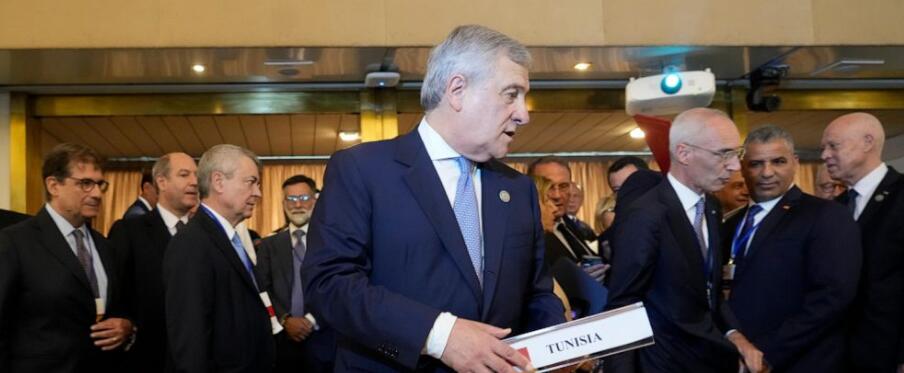Italy’s Meloni seeks broad cooperation to stanch flows of migrants to Europe with aid to Africa
Italian Premier Giorgia Meloni on Sunday called for new, more equal relationships between Europe and migrants’ countries of origin and transit as she convened a summit of some 20 nations, EU officials and international organizations aimed at stanching flows of illegal migration.
The one-day conference is a Meloni initiative that aims to make Italy a leader in resolving issues impacting Mediterranean nations. Chief among them is migration, as Italy sustains hundreds of new arrivals daily on Europe’s southern border, but also energy as Europe looks to Africa and the Middle East to permanently replace Russian supplies.
Human rights groups see the meeting, which includes nations from both northern and sub-Saharan Africa as well as the Middle East, as creating a future roadmap, and worry it will amount to anti-migrant policies that put the onus on Africa to keep Africans out of Europe.
Meloni told the opening meeting that Western arrogance had likely stood in the way of solutions to the migrant issue. She proposed four main prongs for future cooperation: fighting criminal organizations trafficking migrants, better managing flows of migrants, supporting refugees and helping countries of origin.
“The West too often has given the impression of being more interested in giving lessons rather than lending a hand,’’ Meloni said. “It is probably this diffidence that has made it difficult to make progress on solutions.”
She said if flows were better managed there would be more room for legal migration. In her closing press conference, Meloni emphasized that there were no legal means of entry for many people who might have a case for refugee status, because quotas are filled by those who arrive illegally.
“Until yesterday, we had the mentality that said migration cannot be limited, it is a right, borders don’t exist. That is not my approach because borders exist, migration must be managed,” Meloni said.
She said the participants welcomed the conference’s concrete, goal-oriented approach, and noted that the United Arab Emirates had pledged 100 million euros to help improve conditions in countries where poverty and a lack of services is pushing emigration.
“In an era where so much attention is given to the right to migrate, we are not paying sufficient attention to the right to not be forced to emigrate, to not be forced to flee their own homes, to not be forced to abandon their land and leave family members in search of a new life,” Meloni said during opening remarks.
The conference comes against the backdrop of migrants being pushed back from Tunisia into Libya, where they are stuck in the desert, many exposed to the harsh elements.
Pope Francis, in his traditional Sunday blessing, called on leaders in Europe and Africa to find a solution to the thousands of people who are blocked at borders in North Africa.
“Thousands of them have been experiencing indescribable suffering for weeks, and have been trapped and abandoned in deserts,” the pontiff said. “May the Mediterranean no longer be a theater of death and inhumanity,’’ the pope said, calling for a sense of “fraternity, solidarity and welcoming.”
The Rome summit comes a week after one of the key participants, Tunisian President Kais Saied, signed a memorandum of understanding for a “comprehensive strategic partnership” in a meeting that included Meloni and EU Commission President Ursula von der Leyen.
Financial details weren’t released, but the EU has held out the promise of nearly 1 billion euros ($1.1 billion) to help restart Tunisia’s hobbled economy, and 100 million euros ($111 million) for border control as well as search and rescue missions at sea and repatriating immigrants without residence permits.
Saied told the conference said that Tunisia would not allow Europe-bound migrants to settle in the country and that Tunisia will not be a “corridor for outlaws.”
He called for the establishment of a new global financial institution to tackle the root causes of migration and create prosperity and hope in poor countries.
Migrants pay traffickers thousands to make the perilous journey across Africa’s deserts. Many report suffering torture and other abuse along the way. And hundreds drown each year at sea trying to reach Europe in fragile boats.
More than 1,900 migrants have died or gone missing and are presumed missing in the Mediterranean so far this year, bringing the total of dead and missing since 2014 to 27,675, according to the International Organization for Migration. A further 483 are dead or missing in Africa this year.
